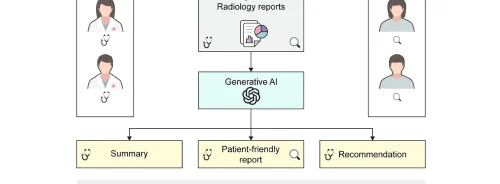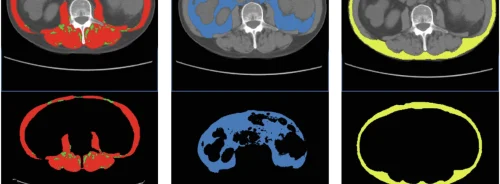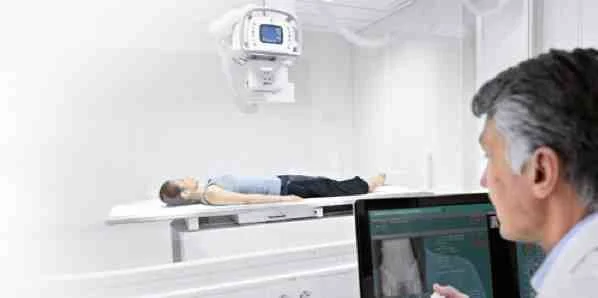Agfa HealthCare has received FDA clearance for its digital radiography (CR and DR) Cesium-based detectors. Use of Caesium-based detectors with Agfa HealthCare CR and DR products allowing dose reduction up to 60%*, which is especially important in neonatal and pediatric environments. - Since the introduction of the first Cesium-based detectors in 2005, more than 60 million patients globally have benefitted from the dose reduction potential that these detectors provide. - As part of the promotional Fast Forward program, which allows customers to easily upgrade from traditional CR to Cesium-based CR or DR; more than 125,000 patients have been examined with a dose reduction potential of up to 60%* the past two months. - Agfa HealthCare’s dose reduction initiative contributes to radiation protection programs like Image Gently and Eurosafe.
Agfa HealthCare has announced that it has received FDA clearance for its DXD Imaging package, which offers dose reduction potential using Caesium Bromide (CsBr) needle-based image plates (NIP) and Caesium Iodide direct radiography (DR) solutions and dose reduction for all digital radiography applications, including neonatal and paediatric. It is not indicated for use with mammography.
The ability to manage radiation dose takes on a special significance in neonatal and paediatric healthcare, because premature infants may have as many as 30-40 examinations during treatment. Agfa HealthCare’s Caesium-based detectors allow a dose reduction of up to 60%* for neonatal and paediatric examinations. All cassette sizes are available, including one that fits easily into neonatal intensive care unit (NICU) incubators.
“Reducing radiation dose is a key objective for care providers globally, and Agfa HealthCare has long demonstrated its commitment to developing ways to help hospitals achieve these goals,” comments Louis Kuitenbrouwer, Vice President Imaging at Agfa HealthCare. “This is a subject that touches all of us, and an area in which Agfa HealthCare can make a big difference.”
Agfa HealthCare’s Fast Forward programme enables hospitals to easily upgrade from traditional CR to Caesium-based CR or DR.
Zwanger-Pesiri, one of the largest non-hospital based radiology practices in the USA today, conducted its own study to verify the dose reduction capabilities of Agfa HealthCare’s solution. The study aimed to determine whether Agfa HealthCare’s DX-D 300 DR system required less exposure and patient dose compared to two other systems in use at Zwanger-Pesiri. The results showed that, while the amount of dose reduction varied depending on the type of exam, the average dose in most cases was more than 40% lower with the Agfa HealthCare system, while still providing high quality.
“We want to ensure that any hospital or private practice that is focused on image quality can benefit from the advantages of the NIP plates,” says Louis Kuitenbrouwer. “With our Fast Forward programme, hospitals can add CR with NIP to DR rooms as a backup that provides the same image quality and dose settings, and/or use a cassette-based system for special exams such as sunrise x-rays.”
Agfa HealthCare has announced that it has received FDA clearance for its DXD Imaging package, which offers dose reduction potential using Caesium Bromide (CsBr) needle-based image plates (NIP) and Caesium Iodide direct radiography (DR) solutions and dose reduction for all digital radiography applications, including neonatal and paediatric. It is not indicated for use with mammography.
The ability to manage radiation dose takes on a special significance in neonatal and paediatric healthcare, because premature infants may have as many as 30-40 examinations during treatment. Agfa HealthCare’s Caesium-based detectors allow a dose reduction of up to 60%* for neonatal and paediatric examinations. All cassette sizes are available, including one that fits easily into neonatal intensive care unit (NICU) incubators.
“Reducing radiation dose is a key objective for care providers globally, and Agfa HealthCare has long demonstrated its commitment to developing ways to help hospitals achieve these goals,” comments Louis Kuitenbrouwer, Vice President Imaging at Agfa HealthCare. “This is a subject that touches all of us, and an area in which Agfa HealthCare can make a big difference.”
Agfa HealthCare’s Fast Forward programme enables hospitals to easily upgrade from traditional CR to Caesium-based CR or DR.
Zwanger-Pesiri, one of the largest non-hospital based radiology practices in the USA today, conducted its own study to verify the dose reduction capabilities of Agfa HealthCare’s solution. The study aimed to determine whether Agfa HealthCare’s DX-D 300 DR system required less exposure and patient dose compared to two other systems in use at Zwanger-Pesiri. The results showed that, while the amount of dose reduction varied depending on the type of exam, the average dose in most cases was more than 40% lower with the Agfa HealthCare system, while still providing high quality.
“We want to ensure that any hospital or private practice that is focused on image quality can benefit from the advantages of the NIP plates,” says Louis Kuitenbrouwer. “With our Fast Forward programme, hospitals can add CR with NIP to DR rooms as a backup that provides the same image quality and dose settings, and/or use a cassette-based system for special exams such as sunrise x-rays.”
Latest Articles
Digital radiography, radiation dose, Agfa Healthcare, Computed radiography
Agfa HealthCare has received FDA clearance for its digital radiography (CR and DR) Cesium-based detectors. Use of Caesium-based detectors with Agfa HealthC...










